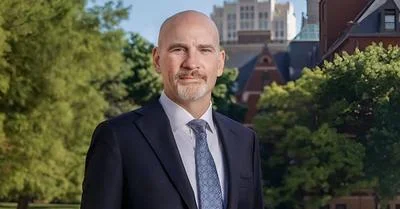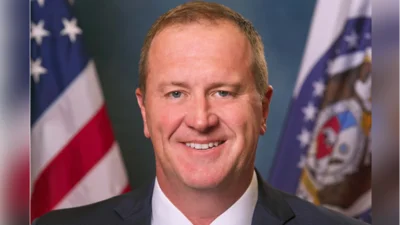Norbert J. Michel, vice president and director, Center for Monetary and Financial Alternatives, Cato Institute | Cato.org
Norbert J. Michel, vice president and director, Center for Monetary and Financial Alternatives, Cato Institute | Cato.org
A national monetary and financial markets analyst said that credit card regulations sponsored by U.S. Sen. Josh Hawley (R-Mo.) are “bad policy” that could result in higher prices for consumers.
“This is bad policy – it is effectively a price control, and likely a forerunner to an explicit price control, and it micromanages one segment of a consumer market at the expense of everyone else,” Norbert Michel, vice president and director of the Cato Institute’s Center for Monetary and Financial Alternatives, told Show-Me State Times.
S. 1838, the "Credit Card Competition Act of 2023," originally sponsored by U.S. Sen. Dick Durbin (D-Ill.), would require banks to offer merchants at least two network options, one of which cannot be Visa or Mastercard, for processing credit card transactions.
The bill applies to credit cards what a similar measure in 2010, often referred to as the “Durbin Amendment,” applied to debit cards. The 2010 measure was a requirement of the “Dodd–Frank Wall Street Reform and Consumer Protection Act.”
“The results of the Durbin Amendment have not been good – people ended up with higher fees and fewer rewards programs for debit cards, and the evidence shows that, for the most part, merchants did not pass any cost savings on to consumers,” said Michel. “This legislation would spread similar regulations throughout the credit card market, and the results would likely be the same, only more widespread.”
A 2014 George Mason University study found that the 2010 “Durbin Amendment” led to a 50% reduction in the number of “fee-free” accounts offered by banks between 2009 and 2013, and doubled average monthly fees on “non-free” current bank accounts.
The study also said the measure resulted in an increase of 1 million "unbanked" Americans in the year after the measure was enacted.
In a February press release announcing his sponsorship of the legislation, Hawley said, “This legislation will grant Main Street relief from Wall Street’s extortionate business practices.”
Michel said the “Main Street vs. Wall Street” is “purely political, in the worst way.”
“The idea that this kind of policy is one that will only affect Wall Street, or big banks, or some bank that isn’t connected to your own bank, is completely false,” Michel said. “But politicians love to score points by beating up on an opponent that seems to be far away.”
Jackson Hataway, president and CEO of the Missouri Bankers Association, wrote in a March 5 Missouri Times op-ed that S. 1838 is “bad policy for Missouri consumers and businesses.”
The bill is currently pending in the U.S. Senate Committee on Banking, Housing, and Urban Affairs.





 Alerts Sign-up
Alerts Sign-up